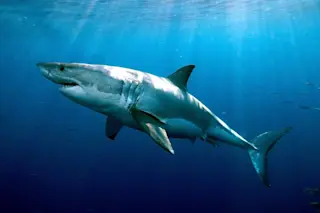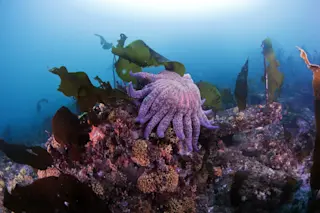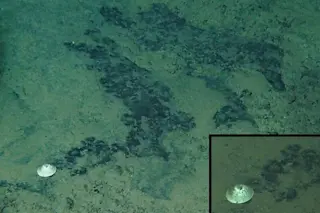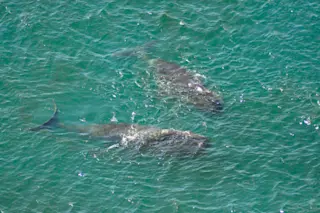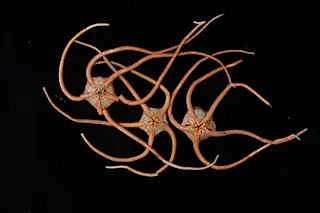A female blacktip shark in a Virginia aquarium got pregnant despite the fact that no male blacktip sharks shared her tank in her eight years of residency, researchers say. This is the second documented case of asexual reproduction, or parthenogenesis, among sharks; the first example of a shark "virgin birth" occurred with a hammerhead shark in a Nebraska zoo. The new findings suggest that the previous event wasn't a marine miracle.
"This first case was no fluke," Demian Chapman, a shark scientist and lead author of the second study, said in a statement. "It is quite possible that this is something female sharks of many species can do on occasion" [AP].
Now scientists are debating whether asexual reproduction is a backup method for female sharks that can't find a mate, or whether the pregnancy was a developmental aberration that occurs from time to time. Chapman argues for the first camp:
...








